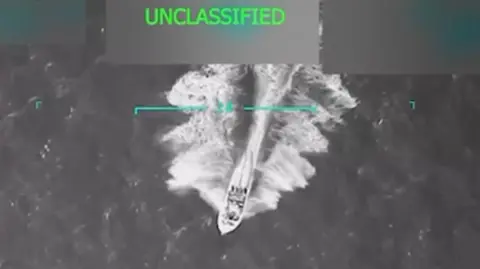The text message came from Dubai with a Santa emoji. OK lads. No need for luck. Really this couldn't be any more straightforward. Just relax and this will all be over soon.
It was sent to a fisherman from Ukraine and an unemployed man from Teesside who were sailing to the middle of the Irish Sea to collect cocaine from a passing cargo ship, the MV Matthew. As it turned out, they needed plenty of luck and very little was straightforward.
The two men were part of an audacious attempt to traffic more than 2.2 tonnes of cocaine into the UK and Europe. It ended in failure, with a successful strike against the powerful drug cartels by the Irish authorities. Eight men were convicted and jailed for a total of 129 years, with all the cocaine destroyed.
Despite this result, law enforcement agencies across Europe admit they are struggling to stop the growing quantity of cocaine crossing the Atlantic from South America. The Maritime Analysis Operations Centre (MAOC), which polices the transatlantic drug trade, reports that numerous ships suspected of trafficking drugs to Europe were not intercepted last year due to insufficient vessels.
UK cocaine consumption reached 117 tonnes last year, resulting in a ten-fold increase in cocaine-related deaths since 2011. Smugglers are now exploring alternative routes, utilizing at-sea drop-off methods to bypass increased security at European ports.
Ireland, with its extensive and vulnerable coastline, has become a target for drug cartels seeking to exploit its open borders with the UK. Although recent police actions revealed weaknesses in maritime defenses, authorities are striving to improve their capacity to combat this narcotic superhighway.
While the significant drug bust on the MV Matthew is a clear victory for the Irish state, the relentless nature of drug trafficking poses an ongoing challenge, invoking urgency for enhanced maritime security measures across Europe.


















